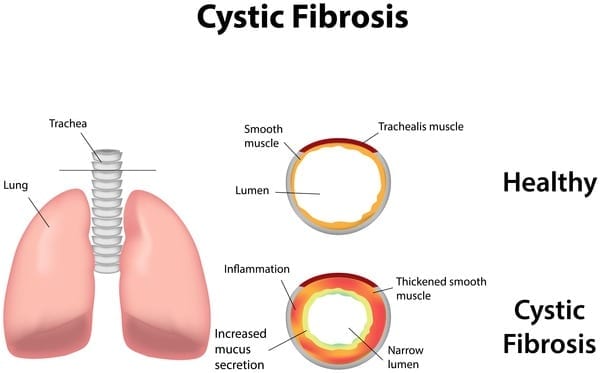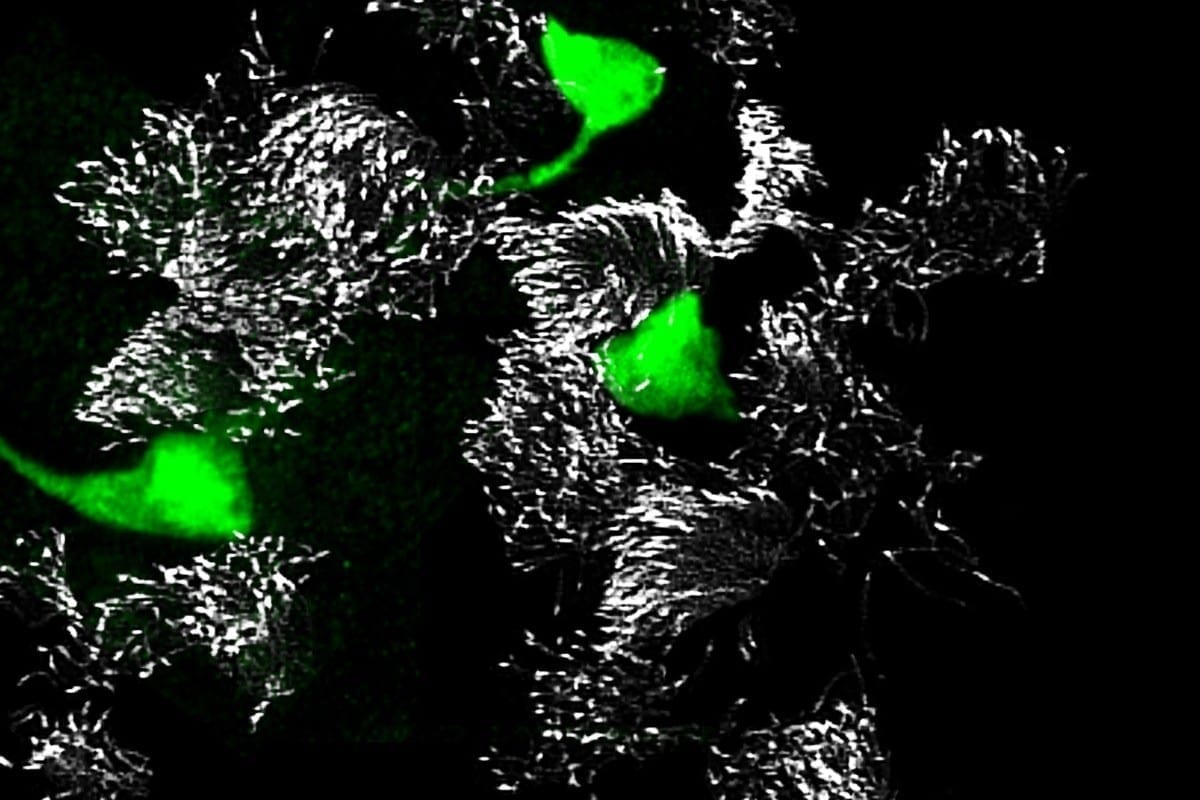
American and European researchers publish study in Nature Medicine reporting a new, single treatment option for cystic fibrosis patients
Researchers from the George Washington University (GW), the University of Perugia, and the University of Rome have discovered a potential new drug to treat and stop the progression of cystic fibrosis. Thymosin ?1 (T?1) is a novel therapeutic single molecule-based therapy that not only corrects genetic and tissue defects, but also significantly reduces inflammation seen in cystic fibrosis patients.
“Right now there are multiple treatments for cystic fibrosis, and while these have improved life expectancy dramatically, there is still only a lifespan of about 40 years for patients. No one treatment can stand alone,” said Allan L. Goldstein, Ph.D., co-author of the paper and Professor Emeritus in Residence of Biochemistry and Molecular Medicine at the GW School of Medicine and Health Sciences. “We developed a single treatment that can potentially correct the genetic defect that causes cystic fibrosis and decrease the inflammation that happens as a result.”
Cystic fibrosis is a genetic disease that causes persistent lung infections and limits the ability to breathe over time, and it affects approximately 70,000 worldwide and 30,000 in the U.S. alone. Cystic fibrosis is the result of mutations in the gene encoding the protein called the cystic fibrosis transmembrane conductance regulator (CFTR), which is important to maintain chloride-channel activity affecting the salt and water balance in the lungs. This mutation results in a misfolded CFTR protein, and its premature degradation leads to impaired chloride permeability and persistent lung inflammation.
Goldstein and co-authors Luigina Romani, Ph.D., M.D., at the University of Perugia and Enrico Garaci, M.D., at the University of Rome “San Raffaele,” both in Italy, published their results in Nature Medicine. They report that T?1, a synthetic version of a naturally occurring peptide first isolated from the thymus, corrects the multiple tissue defects found in the lungs and small intestines in a mouse model of cystic fibrosis, as well as the defects in the CFTR seen in cells isolated from cystic fibrosis patients. T?1 not only significantly reduces the inflammation seen in cystic fibrosis, but also increases CFTR maturation, stability, and activity. Due to this two-pronged action, T?1 offers a strong potential to be a single-molecule therapeutic agent to treat and stop the progression of cystic fibrosis.
Goldstein and colleagues first isolated and characterized T?1 as a biological response modifier with potent immune therapeutic activity in 1979. This research was done in large part at GW. Although the peptide is produced in small amounts in several peripheral lymphoid and non-lymphoid tissues, the highest concentrations of T?1 are found in the thymus. T?1, whose commercial name is Zadaxin, has been approved for clinical use for over 15 years in 35 countries in the treatment of patients with viral infections, immunodeficiency diseases, malignancies, and HIV/AIDS. Though not currently available in the U.S., it has an excellent safety profile and does not induce the side effects and toxicities commonly associated with most immunomodulatory agents.
Learn more: Research Uncovers Potential New Treatment to Treat and Stop Progression of Cystic Fibrosis
[osd_subscribe categories=’cystic-fibrosis’ placeholder=’Email Address’ button_text=’Subscribe Now for any new posts on the topic “CYSTIC FIBROSIS”‘]
The Latest on: Cystic fibrosis
[google_news title=”” keyword=”cystic fibrosis” num_posts=”10″ blurb_length=”0″ show_thumb=”left”]
via Google News
The Latest on: Cystic fibrosis
- A New Delivery System Offers Hope for Cystic Fibrosison May 1, 2024 at 7:52 am
CRISPR-carrying lipid nanoparticles enabled researchers to correct a rare nonsense mutation in the lungs of a cystic fibrosis mouse model.
- Her Daughter Died From a Chronic Illness — Now, She's Sharing Her Diaryon May 1, 2024 at 4:45 am
Diane Shader Smith was at a bris ceremony celebrating the birth of her friend's baby boy when she got the call that her then 3-year-old daughter Mallory had been diagnosed with cystic fibrosis. "We ...
- Electric pulses boost gene therapy uptake in liver cellson April 30, 2024 at 10:37 pm
In an effort to improve delivery of costly medical treatments, a team of researchers in electrical engineering at the University of Wisconsin–Madison has developed a stimulating method that could make ...
- Cystic fibrosis patients may have a high prevalence of developmental defect of enamel, reveals studyon April 30, 2024 at 8:30 am
Cystic fibrosis patients may have a high prevalence of developmental defects of enamel, according to a study published in the Journal of Dentistry.Cystic Fibrosis is an autosomal ...
- Man to cycle 530 kilometres to save next generation of cystic fibrosis suffererson April 30, 2024 at 7:52 am
Devoted dad Bob Clarke is cycling 530 kilometres from Vietnam’s Ho Chi Minh To Angkor Wat in Cambodia … to save cystic fibrosis patients like his treasured daughter. And CF-sufferer Sophie Clarke, 29, ...
- Organization Tips for Parents of Children With CFon April 30, 2024 at 2:00 am
Caring for a child with CF can be a lot to juggle — from the many medications and daily treatments to the endless doctor's appointments. But I’ve found a system that helps me stay organized and stress ...
- Researchers explore new cell target for cystic fibrosis treatmenton April 29, 2024 at 9:54 am
A team of University of Saskatchewan (USask) researchers are exploring the role of a newly identified cell type in cystic fibrosis (CF), which could lead to effective new types of treatment.
- Knoxville community rallies to find cure for cystic fibrosison April 29, 2024 at 5:43 am
Leaders in our community say it'll take everyone coming together to finally find a cure for cystic fibrosis, which is why the Tennessee chapter of the Cystic Fibrosis Foundation is hosting the East ...
- Local high school hosts a walk-a-thon to raise funds for Cystic Fibrosison April 28, 2024 at 6:45 pm
More than 100 people came out to Illinois Valley Central High School to walk and donate to the Cystic Fibrosis Foundation. This is the first time that the school ...
via Bing News










